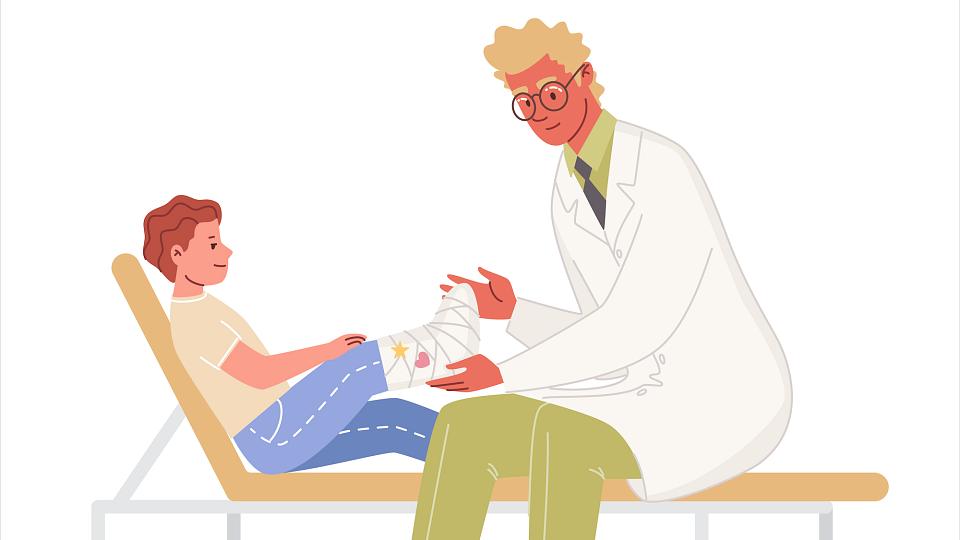
This content was originally produced for audio. Certain elements such as tone, sound effects, and music, may not fully capture the intended experience in textual representation. Therefore, the following transcription has been modified for clarity. We recognize not everyone can access the audio podcast. However, for those who can, we encourage subscribing and listening to the original content for a more engaging and immersive experience.
All thoughts and opinions expressed by hosts and guests are their own and do not necessarily reflect the views held by the institutions with which they are affiliated.
Common Backpack Mistakes That Lead to Back Pain
Backpacks seem to be getting heavier and heavier for students these days. Why is it important for your child to lighten their load? Believe it or not, almost 14,000 children are treated for backpack-related injuries each year. Back specialists recommend that a backpack should be less than 10% to 15% of a child's body weight, but often it's more. Kids should use both arm straps to balance the backpack weight on both shoulders. But that's "not cool," and so the extra weight is being put on only one half of the child's body.
The back muscles don't like being unbalanced. They will strain, and this causes the low back pain that most kids complain about. Back muscles being unbalanced can also pull on the spine and affect one's posture. This is bad news in the teenage years when kids are going through their last big growth spurt and their spine is developing.
Choosing the Right Backpack for Your Child
The good news is that this is all easy to prevent. Make sure your child is fitted for a backpack properly. Sporting goods stores are actually where specialists recommend you get your backpacks for teens. They've outgrown the cool characters on the cheaper backpacks, and they need a good quality backpack that will last them through their school years.
The employees at sporting goods places can help you pick out a backpack that is the right size for your child and has the features you're looking for. Again, be sure your child is using both shoulder straps, not just one. And if at all possible, transport only what is necessary in their backpacks to and from school. Make sure they're standing up straight when walking. Yes, posture is important because it determines where the contents of the backpack hit your child's back.
Finally, if the backpack is heavy, make sure your student is only carrying it when needed. Otherwise, it's okay to take the backpack off and set it on the ground if they're going to be standing in place for a while. Back pain is never fun. And if your child is complaining about back pain, be sure to have them be seen by their pediatrician to make sure it's only muscle pain and not anything more serious.
updated: August 6, 2025
originally published: August 7, 2017
More Answers to Your Questions on Keeping Your Kid Healthy and Happy
Latest trends and issues in children's health on the Healthy Kids Zone with Dr. Cindy Gellner

Learn More From Our Specialists
Seven Questions for a Pediatric Orthopedic Surgeon
On this episode of Seven Questions for a Specialist, pediatric orthopedic surgeon Joshua Speirs, MD, shares insights into the typical diagnoses he encounters, debunks common misconceptions about pediatric orthopedics.





